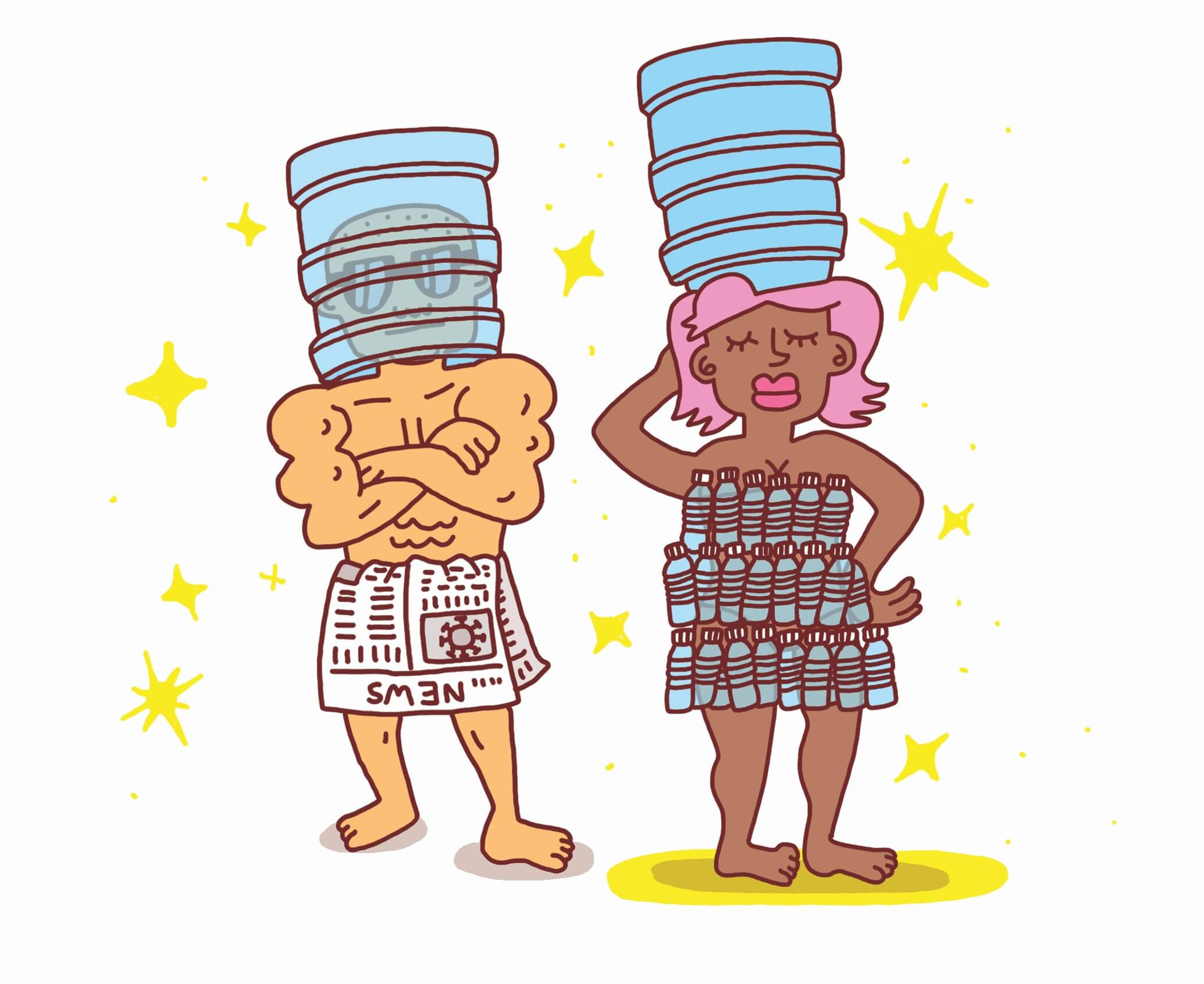Hero: Eastman Chemical
One disturbing consequence of the pandemic has been the mountains of single-use plastic it has generated.
In January, Tennessee-based Eastman Chemical unveiled a bold initiative to tackle this problem with plans for a US$1-billion plant in France that each year will turn up to 160,000 tonnes of plastic waste currently sent to landfills or incinerators into brand-new packaging and textile materials. Some of the world’s largest users of plastic containers, such as Procter & Gamble, Estée Lauder and Danone, have signed up as suppliers.
The French plant – like a smaller one under construction in Tennessee – will use Eastman’s polyester renewal technology, which breaks down hard-to-recycle carpets, textiles and containers into their molecular building blocks, then reassembles the material into new plastics. The company claims that the process can be used repeatedly on the same materials with no loss of quality. It estimates that the combination of its technology and France’s renewable energy resources will cut greenhouse gas emissions by 80% compared with other recycling methods.
The company’s head of plastics, Scott Ballard, told a Tennessee TV station: “What we’re trying to do is make it easier … for governments to create infrastructure to recycle.
Because with this technology, that waste becomes valuable, [so] we can pay money for it as a feedstock, as opposed to them having to pay to dispose of it.”
Eastman’s project, which will benefit from French government incentives, is an encouraging sign that the fight against plastic pollution is gathering steam. Last November, a study for the U.S. National Academy of Sciences estimated that the pandemic has generated more than eight million tons of plastic waste, mostly from hospitals.
More than 70 prominent consumer-goods companies came together in January to call for a global treaty to fight plastic pollution. The signatories, including Unilever, Walmart, Ikea and Coca-Cola, urged governments to adopt a wide range of policies to “keep plastics in the economy and out of the environment, reduce virgin plastic production,” and decouple plastic-production fossil fuels.
Such initiatives are sure to face pushback from powerful fossil-fuel and chemical industries that supply the raw materials for plastics. They would be wise to recognize, however, that the tide is not moving their way. Projects like Eastman’s will hopefully persuade businesses in many other sectors that the future lies in ever more efficient recycling.

Zero: Keurig
Speaking of recycling… Coffee-machine maker Keurig boasts on its website that by using its K-Cycle program, corporate customers can fully recycle every one of its single-use coffee pods. By 2020, the Massachusetts-based pioneer of single-serve coffee makers had diverted 136 million pods, weighing more than 2.7 million kilograms, from landfills by composting the grounds and filters and recycling the plastic and aluminum packaging.
But there’s a snag for those of us who use Keurig pods at home. The company reached a settlement with Canada’s Competition Bureau in January over what the bureau described as “false or misleading” claims about the recyclability of K-Cup pods. Under the deal, Keurig agreed to pay a $3-million penalty, donate $800,000 to a charity focused on environmental causes, and cover the costs of the bureau’s investigation. It must also reword its claims about the pods’ recyclability, and change their packaging accordingly.
Within a few weeks of the settlement, Keurig Canada had put up a banner on its website, noting that “Keurig K-Cup pods may not be recyclable in your area; check with your local municipality for more information.” A link gave more details of the settlement.
Alerted by researchers at the University of Victoria’s Environmental Law Centre, the bureau found that Keurig pods are not widely accepted by municipal recycling programs outside British Columbia and Quebec. It also concluded that Keurig’s claims give the impression that coffee drinkers can prepare the pods for recycling simply by peeling off the lid and emptying out the grounds, when, in fact, some recycling programs require more steps.
“False or misleading claims by businesses to promote ‘greener’ products harm consumers who are unable to make informed purchasing decisions,” noted Commissioner of Competition Matthew Boswell. Such claims, he added, also hurt suppliers of rival products that are less environmentally damaging.
Of course, Keurig is not alone in promising more than it delivers. The University of Victoria group found that Toronto’s solid-waste department recovers about 90 tonnes of coffee pods annually from a variety of brands that clog its recycling system.
The Competition Bureau’s statement announcing the settlement ended on a note of appreciation for the company’s “voluntary cooperation in resolving this matter.” Even better, Keurig and other pod makers could avoid the problem by making only refillable pods.







